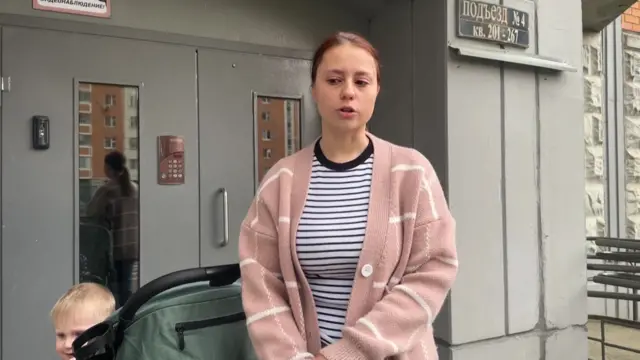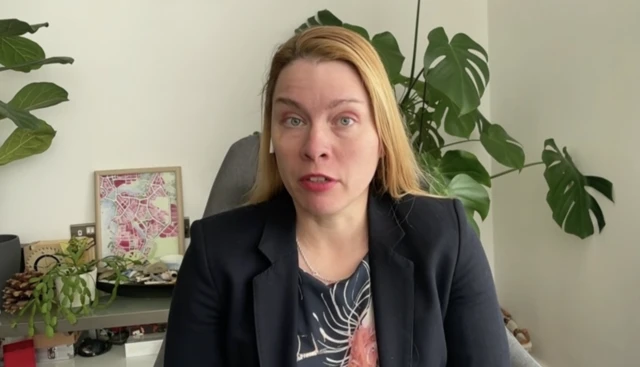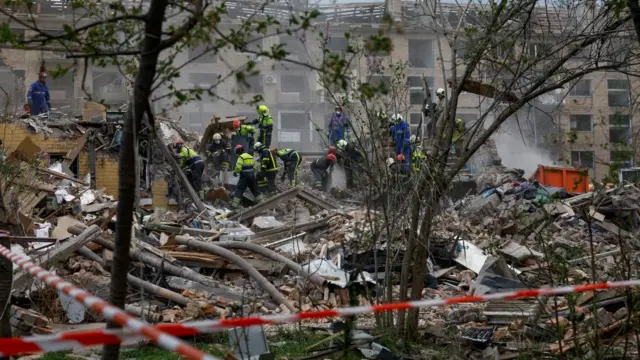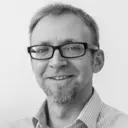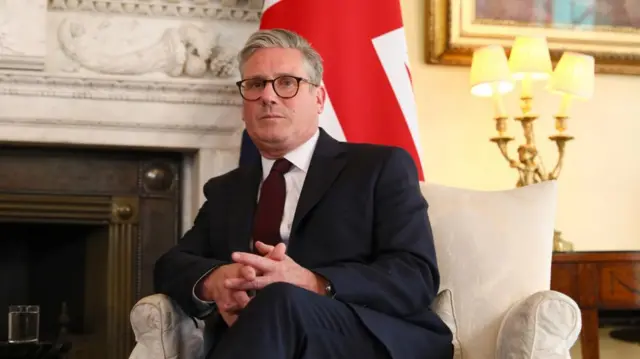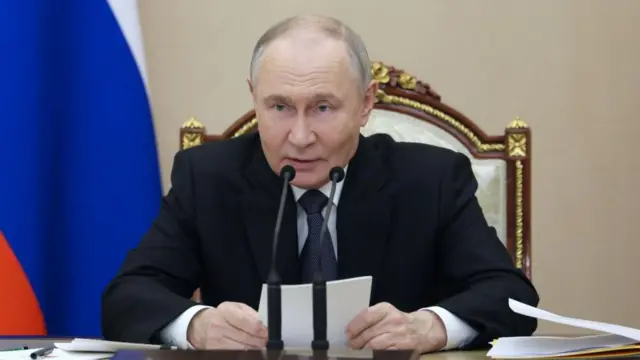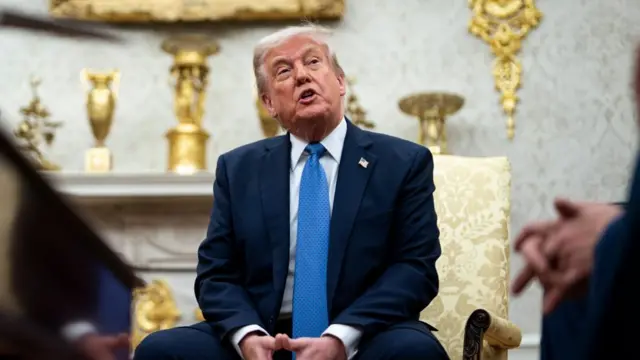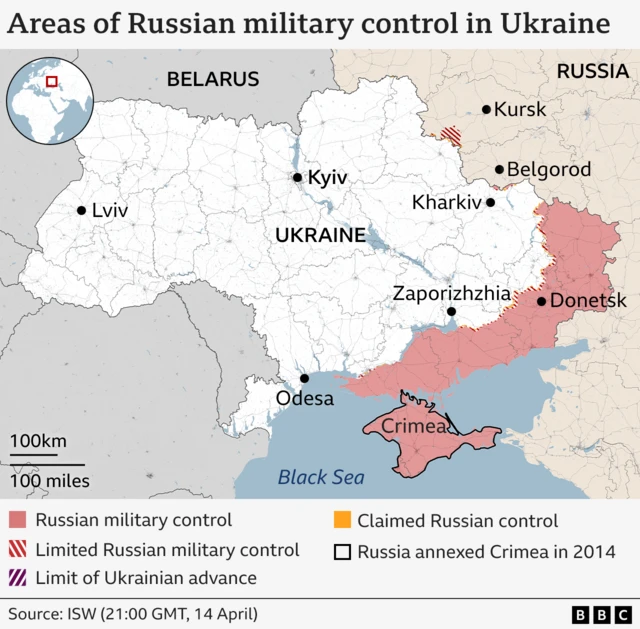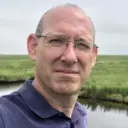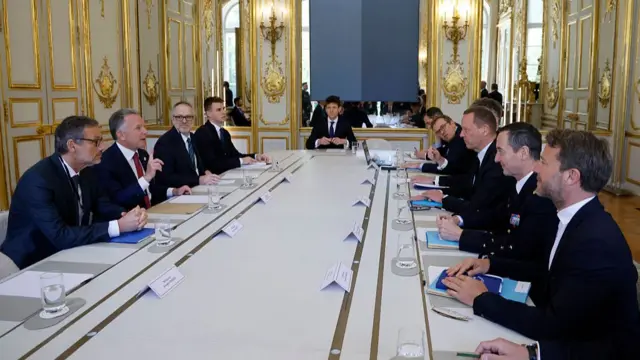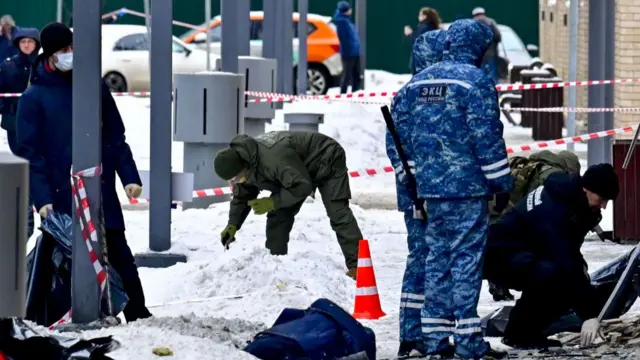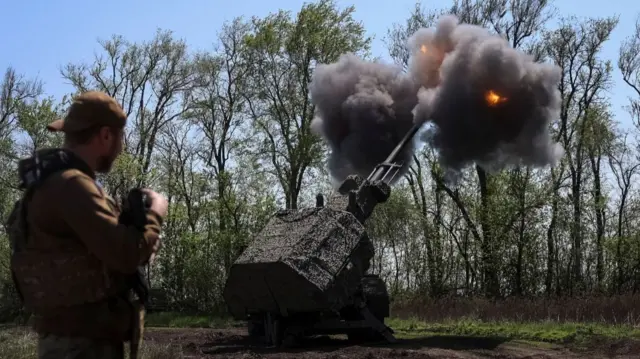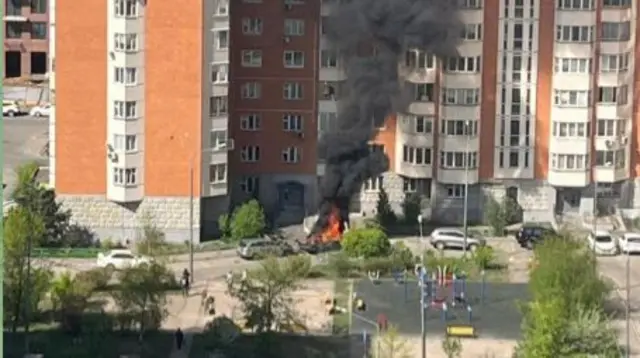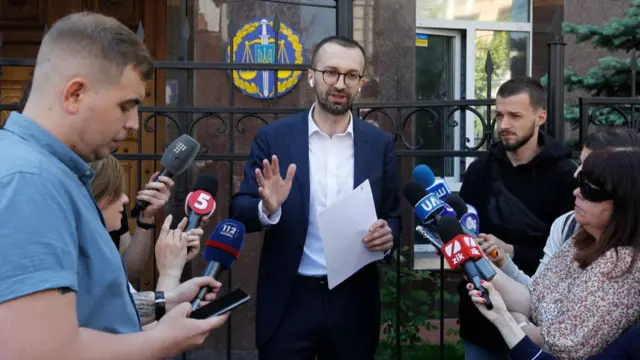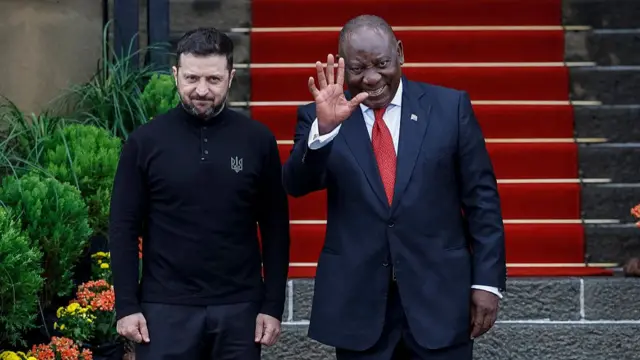Kyiv mayor seeks to 'clarify' earlier remarks on conceding territorypublished at 14:19 British Summer Time 25 April
Kyivs's mayor, who made headlines this morning suggesting Ukraine may have to give up territory, albeit temporarily, to secure peace, says he "did not say anything new".
"It is very regrettable that, as we can see, this scenario is quite possible. A lot of world politicians and media are talking about it today," Vitali Klitschko says on Telegram.
"In the interview, I stressed that the Ukrainian people will not accept Russian occupation of their country."
He says territorial concessions contradict Ukraine's national interests, and Ukraine must fight against them "until the very end".
Klitschko says this will require "extraordinary efforts" from Ukraine and European partners, but doesn't mention the US.
